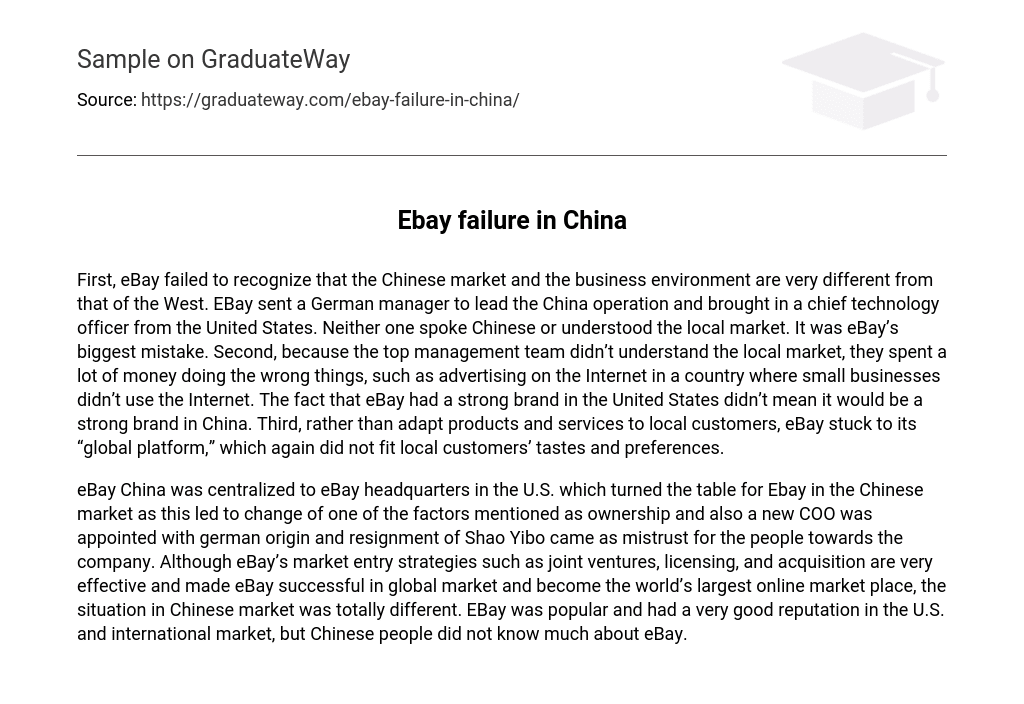Firstly, eBay’s oversight of the differences between the Chinese market and the Western market led to significant errors. They appointed a German manager and a chief technology officer from the United States, neither of whom were fluent in Chinese or understood the local business environment. This decision turned out to be eBay’s biggest mistake.
Furthermore, due to their lack of understanding of the local market, eBay wasted substantial financial resources on ineffective strategies, such as Internet advertising in a country where small businesses did not utilize the Internet. The strong brand that eBay possessed in the United States did not automatically translate into a strong brand in China.
Lastly, instead of customizing their products and services according to local customer preferences, eBay insisted on maintaining its “global platform,” which failed to meet the tastes and preferences of Chinese customers.
eBay China’s centralization to the U.S. headquarters resulted in a significant shift for eBay in the Chinese market. This change affected the ownership factor and also led to the appointment of a new COO of German origin. Additionally, the resignation of Shao Yibo caused mistrust among the people towards the company. While eBay’s market entry strategies such as joint ventures, licensing, and acquisition proved successful globally, the situation in the Chinese market was distinct. Despite eBay’s popularity and excellent reputation in the U.S. and international markets, Chinese consumers had limited knowledge about the company.





